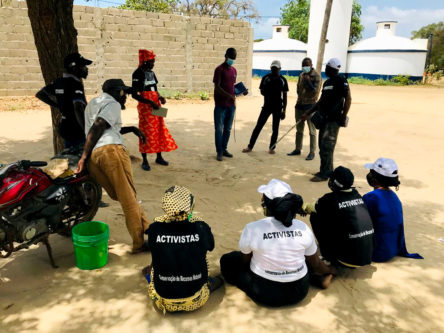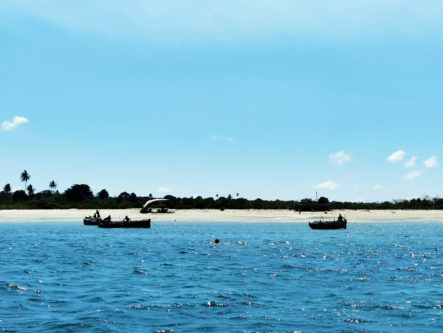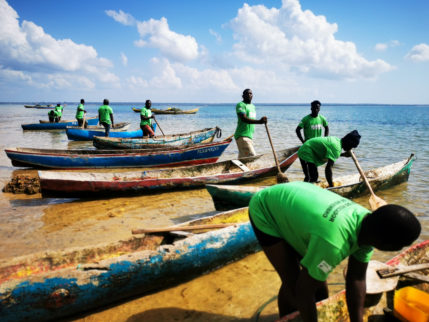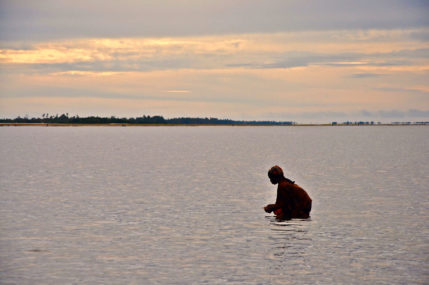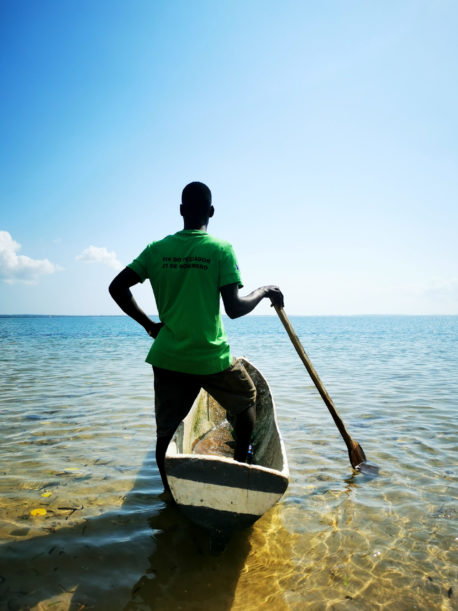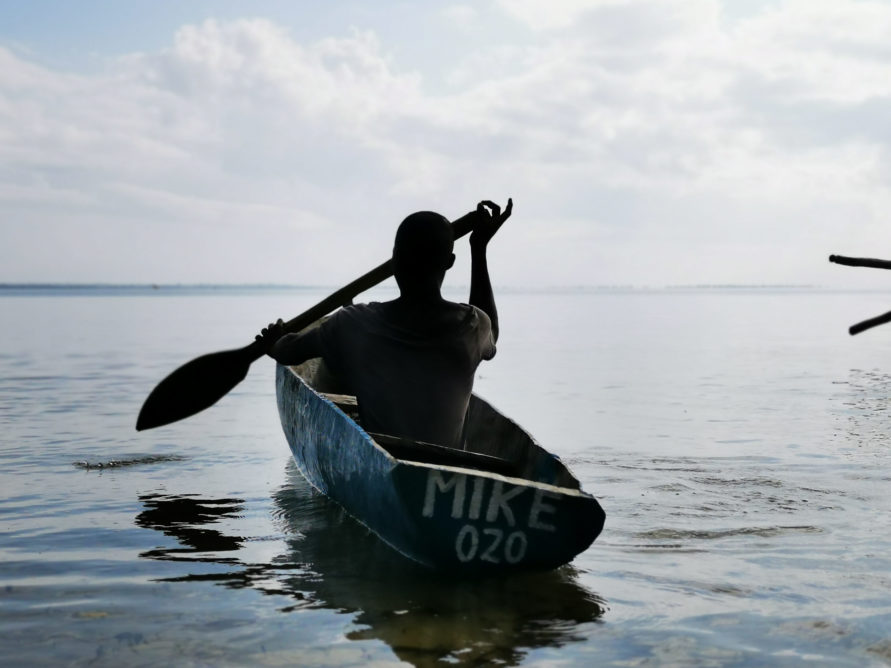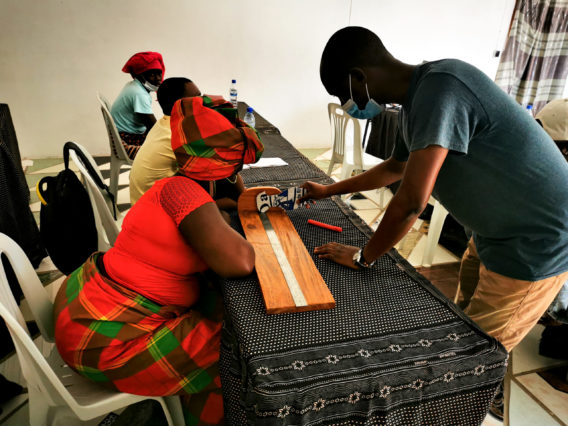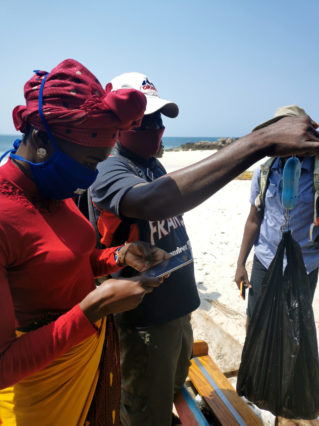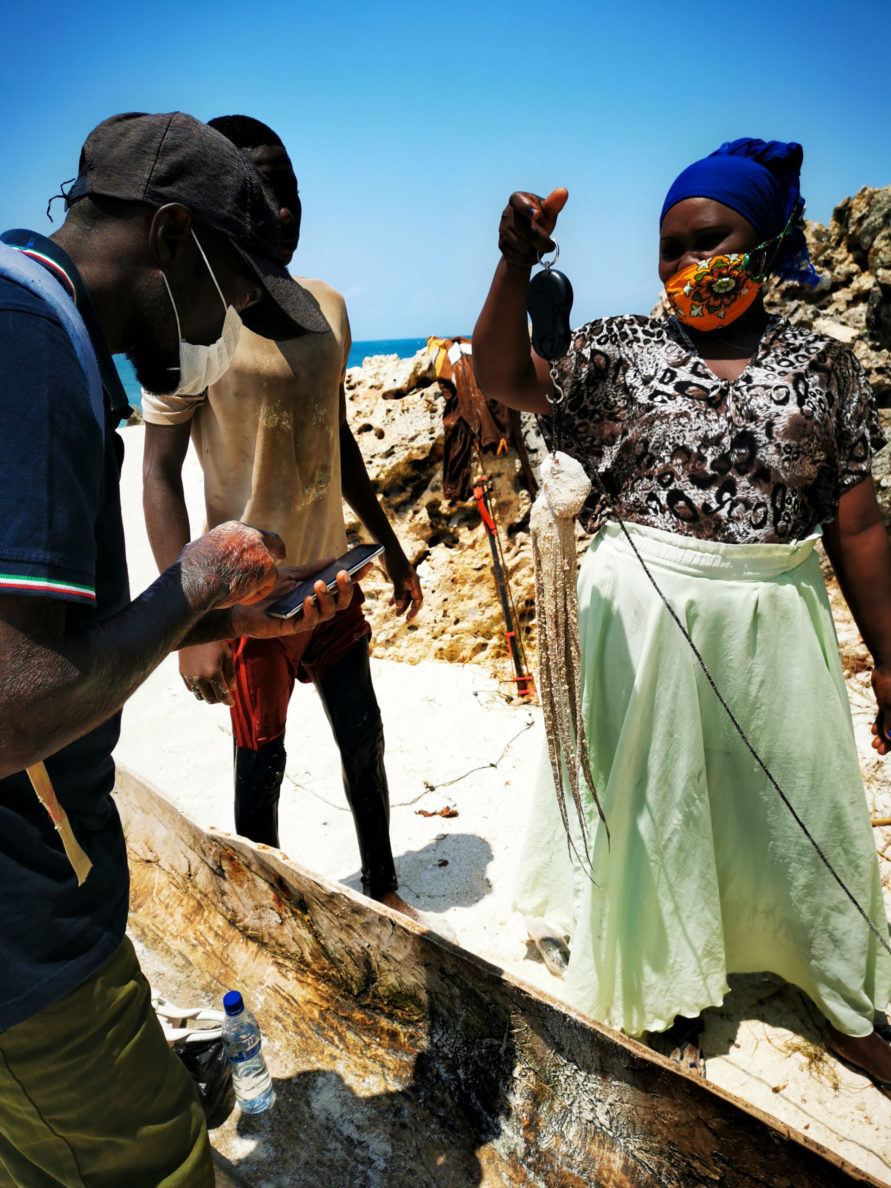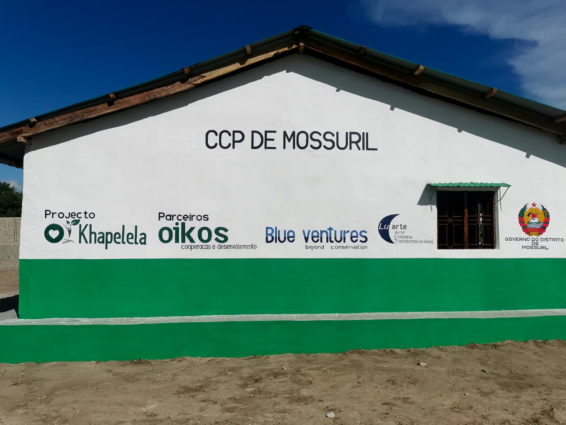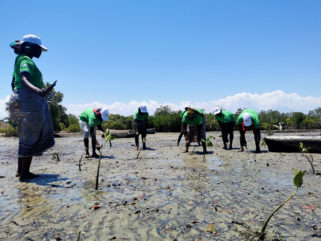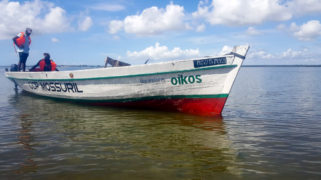This post is also available in:
 Portuguese (Portugal)
Portuguese (Portugal)
I noticed that in my community, many people were using a lot of harmful fishing gear, cutting mangroves and the fish caught were too small… but then Oikos gave me the opportunity to be an activista” – Orlando Ahate
Orlando is from São João, a small fishing village in Nampula Province’s Mossuril district, Mozambique. In his community, livelihoods are dependent on the ocean, but local fish stocks are under threat due to overfishing, illegal and unsustainable fishing, and climate breakdown. Activistas, or community outreach workers, like Orlando are working to improve community-led fisheries management efforts, with support from Oikos – Cooperação e Desenvolvimento and Blue Ventures.
The activistas maintain an important connection with the community and provide a voice to convey the needs of fishers. “To be an activista, is to be a community messenger; a volunteer with credibility and acceptance in the community” says Orlando, “We are there to help the community solve problems and connect with the government, NGOs and other stakeholders”.
Earlier this month, I spoke with a group of activistas from four villages across Mossuril and Ilha de Moçambique. As Blue Ventures’ fisheries officer in Mozambique, it’s my responsibility to support our partners in the country, including Oikos. I regularly work with the activistas, whether collecting and analysing fisheries data or attending community meetings, so it was great to hear more of their stories.
I was a fish trader and also a Conselho Comunitário de Pescas [community fishers council or CCP] member but recently it has been very difficult to buy fish. We spend a lot of time waiting for the fisherman but when they come, they bring low quality fish and in small quantities” – Muchamo Amisse, Lumbo village
Dwindling fish stocks is a prevalent problem in small-scale fisheries across the Western Indian Ocean region and this area of Mozambique is no exception. Afonso, an activista from Chocas Mar told me about his father, a fisher who has been forced to venture further offshore for longer periods with no guarantee of returning with adequate catch. This situation has been compounded by COVID-19 which has reduced tourist visits to restaurants in Chocas Mar, which are the main fish buyers.
My father is a fisherman. In the past, he managed to catch big fish near the shore. But now he has to travel long distances over long periods only to return with low catch… Without fishing, there is no life in our communities” – Afonso Canrithia, Chocas Mar
Activistas also include women like Sofia Abuderemane from Lumbo village. The women have developed their communication skills, enabling them to speak with fishers and raise awareness on fisheries management issues such as a lack of sustainable and adequate fishing gears.
We are well respected in the community for our work. Directly or indirectly, my community have noticed positive changes since I became an activista” – Sofia Abuderemane, Lumbo village
In September 2020, Oikos trained the activistas in data collection using mobile phones, reading electronic scales, collecting fish length data and simple data analysis. In Mossuril district, recent data have revealed a change in the size and reappearance of species like Sala (Gerres), Chamuanquela (Blackspotted emperor) and Mampura (Common slipmouth) which had been missing from catches for a long time. Data analysis by the activistas attributed this to the community-managed fishery closures which have led to a spillover of fish stocks into open fishing areas.
These sets of skills have enabled the activistas to understand their fisheries better and assist communities in important decision making around marine management. For example, in Cabaceira Pequena, Chocas Mar and São João, the communities were able to make comparisons of fish catch from different periods, allowing them to successfully plan when to open and close their fish reserves. This led to the establishment of a temporary fish and octopus closure.
Before the closure, mackerel didn’t appear so much and the numbers of octopus had reduced but after establishing the closure, data collected shows some improvements; mackerel and octopus have increased while sala, which were small, are now big” – Afonso Canrithia, Chocas Mar
Consequently, the developments in these three villages have inspired other activistas to work on establishing temporary closures in their communities.
We are envious of our colleagues whose communities have established temporary closures as we are yet to establish ours since we are struggling to have it in our community” – Sofia Abuderemane, Lumbo village
As well as being a vital connection to engaging communities in fisheries management, the activistas have supported Oikos to build a CCP headquarters for the Mossuril district – they had previously been meeting under trees or at their president’s house. In São João, the community needed to patrol their huge closure area, but didn’t have a boat. In March 2021, Oikos facilitated the purchase of a boat, which is now being used by the local activistas to carry out closure patrols more efficiently across São João, Cabaceira Pequena and Chocas Mar.
Last week we managed to patrol our closure and we caught some fishermen who were using mosquito nets and others who were using light attraction at night” – Assumane Abudo and Saquina Atumane, Cabaceira Pequena
Throughout the pandemic, the activistas have also been busy raising awareness of COVID-19 within their communities and providing soap and water at fishing centres.
Some people were refusing to wear masks, but we continued to speak to them and now they are using them” – Palmira Aderito, Chocas Mar.
I put a bucket with water and soap at Mahiye yangelezi fishing centre for the fishers and traders to wash their hands” – Muchamo Amisse, Lumbo village.
Talking with the activistas showed me just how important they are in helping communities to take the lead in fisheries co-management. The collaboration between them and the communities they represent is key to ensuring sustainability, good governance and effective monitoring and evaluation. In the end, their hope is that their communities will have the skills and resources to manage their fisheries independently.
I would like to continue with the good collaboration between activistas and communities, to help the fishers to stop using quinia (mosquito nets) and mpapara (drag nets) – Muchamo Amisse, Lumbo village
Thank you to the activistas who shared their stories with me: Orlando Ahate and Atia Florindo from São João; Assumane Abudo and Saquina Atumane from Cabaceira Pequena; Afonso Canrithia and Palmira Aderito from Chocas Mar, and Muchamo Amisse and Sofia Abuderemane from Lumbo.
Learn about how Jamen supported Oikos to facilitate training on governance and conflict management within CCPs back in September 2020
Read more blogs about our partnerships in Mozambique


